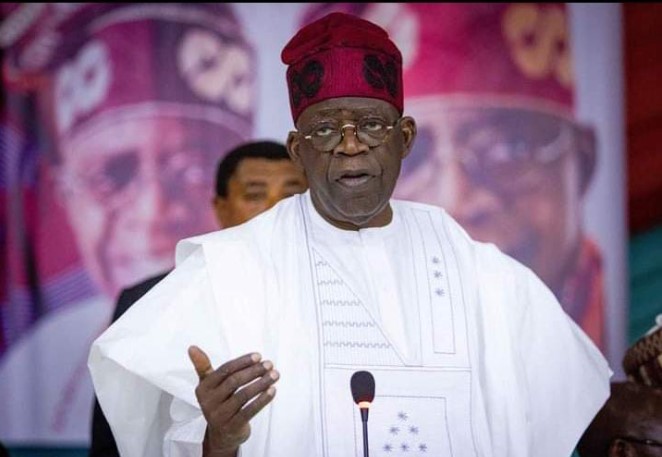President Bola Ahmed Tinubu is said to be “incandescent with rage” following reports that Jupiter Lithium Limited, a British mining firm, has formally made known its intention to initiate arbitration proceedings against the Nigerian government over the abrupt cancellation of its lithium mining permits in Kaduna State. The Tinubu administration has not provided any reasons for the revocation of the mining permits, but Presidency sources who spoke to Huhuonline.com under conditions of anonymity describe Tinubu as “deeply angered” and “personally affronted” by what he sees as an “orchestrated ambush” by a foreign investor seeking to embarrass Nigeria on the global stage.
The dispute, now hurtling toward an international legal showdown, stems from the federal government’s revocation of mining licenses covering over 442 square kilometers of lithium-rich terrain in Kaduna State. The company asserts its permits were valid for 50 years, extending to 2074 and that it has been diligently working with local communities, before the Nigerian government unlawfully revoked the permits. The British firm says the move undermines not only its investment, but also its landmark partnership with ReElement Technologies, a US-based company aiming to establish a major downstream lithium processing facility in Nigeria. Nigeria has until September 2, 2025, to respond to the arbitration notice, which will be filed with the International Centre for Settlement of Investment Disputes (ICSID) – a World Bank affiliate court that adjudicates global investor-state disputes.
Tinubu’s Reaction: “A National Embarrassment”
According to aides, President Tinubu considers the arbitration threat a “deliberate act of economic sabotage” and is infuriated by what he believes to be a coordinated attempt to tarnish Nigeria’s efforts to diversify away from oil dependence. One top official close to the president was quoted as saying:
“The President is not just angry; he’s furious. Nigeria will not be bullied by foreign companies or manipulated into submission through international blackmail. This government is not for sale.” The President is also said to have summoned high-level briefings from the Ministry of Solid Minerals, Ministry of Justice, and the Nigerian Investment Promotion Commission (NIPC) to explore Nigeria’s legal footing and the political ramifications of the case.
The dispute now threatens to strain Nigeria–UK relations, coming just months after President Tinubu visited London to woo British investors. UK diplomats have reportedly sought urgent clarification from Nigeria’s Foreign Ministry, while British Parliamentarians are demanding assurances that the rights of UK companies operating in Nigeria will be protected under bilateral investment treaties. “If this spirals out of control, it could deal a fatal blow to investor confidence,” warned a senior diplomat in Abuja. “And that’s not something Nigeria’s mining ambitions can afford.”
A Pattern of Legal Firestorms
If Jupiter proceeds with the arbitration, it will mark Nigeria’s third ongoing dispute before ICSID; raising alarms within the international business community that Africa’s most populous country may be sliding into a pattern of unstable resource agreements and erratic regulatory enforcement. Analysts fear the dispute could chill future investment in Nigeria’s emerging critical minerals sector, which is central to the country’s plan to leapfrog into the clean energy economy. Lithium, a key component in batteries for electric vehicles and renewable storage, is considered the “new oil” of the global energy transition.
The arbitration proceedings could create tension between Nigeria and Britain, particularly if the dispute escalates or if the outcome is seen as unfavorable to either party. Such disputes can make Nigeria appear less attractive to foreign investors, potentially hindering future British investment in the Nigerian mining sector and other industries.
Meanwhile, civil society organizations have raised questions about the true motives behind the permit cancellations, pointing to a murky web of local interests and unfulfilled government promises to host communities. Concerns around job creation, environmental impact, and land rights may surface during the arbitration and risk further damaging Nigeria’s image. “This is a mess – part political, part legal, part moral,” said a source within Nigeria’s mining regulatory framework. “And now, it’s going global.”
Jupiter Lithium and ReElement Technologies had announced plans to begin production of 55,000 tons of lithium concentrate in Q1 2025, scaling up to 167,000 tons annually. At the time the partnership with ReElement was signed, Jupiter said in a statement that: “Jupiter Lithium plans to expand its operations from contract mining to large-scale ownership, including the construction of a spodumene concentrator facility. The facility is expected to produce an initial 55,000 tons of 6% lithium spodumene concentrate annually, with production set to increase to 167,000 tons within two years. The first concentrate is anticipated in the first quarter of 2025.” Mark Jensen, CEO of ReElement, highlighted the importance of the partnership in fostering advanced manufacturing in Nigeria. “We are thrilled to establish our first large-scale spodumene supply partnership and refine it locally,” Jensen said.
That project, now in jeopardy, was poised to be Nigeria’s first large-scale lithium operation, signaling a strategic pivot toward green industrialization. With the arbitration clock ticking, the Tinubu administration faces a tough dilemma: defend national sovereignty and risk international backlash, or seek a settlement and risk appearing weak. For now, President Tinubu is reportedly preparing to deliver a strongly worded message to both local and international stakeholders, reaffirming Nigeria’s commitment to investment; but only on “mutually respectful terms.”





